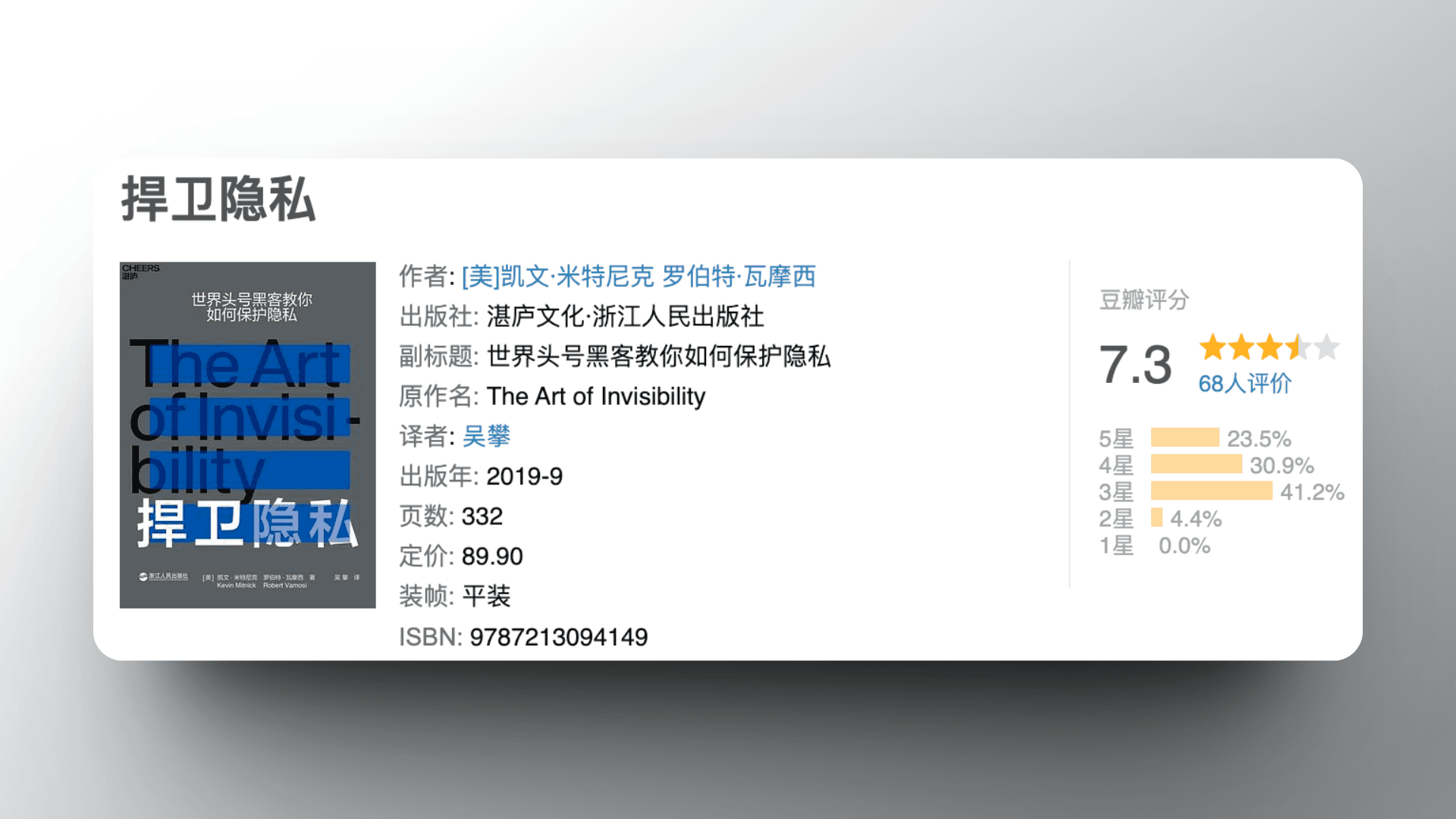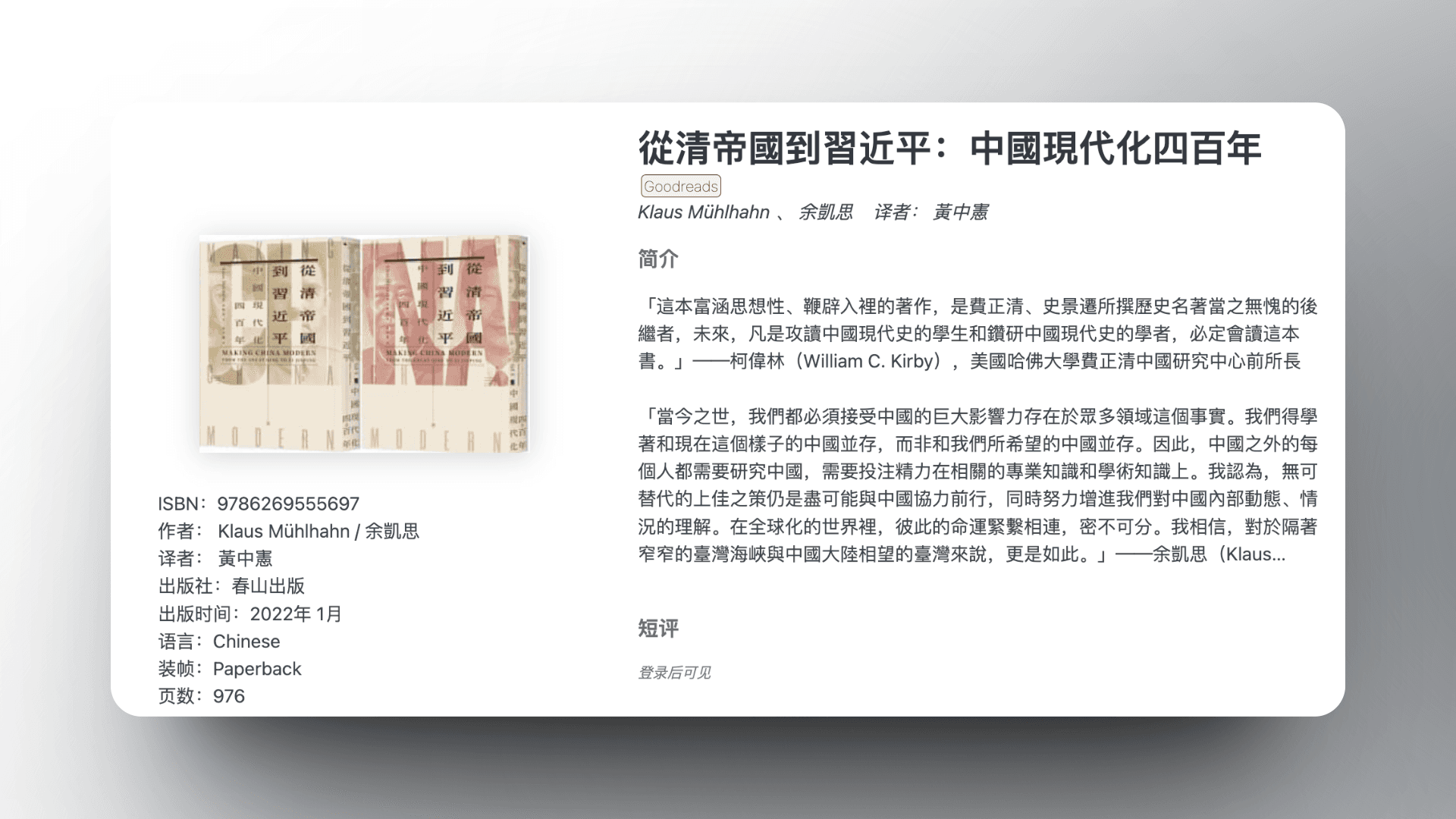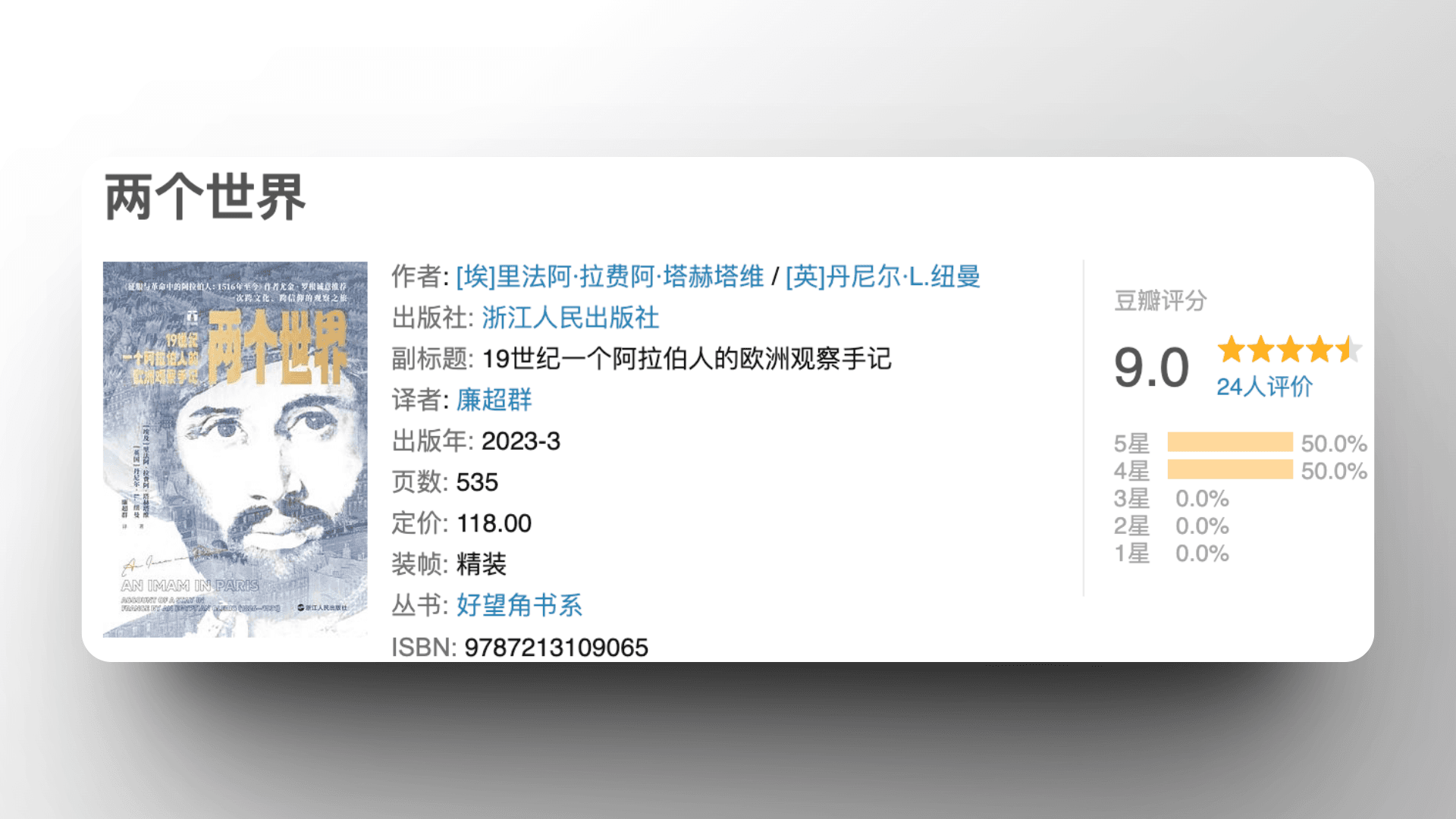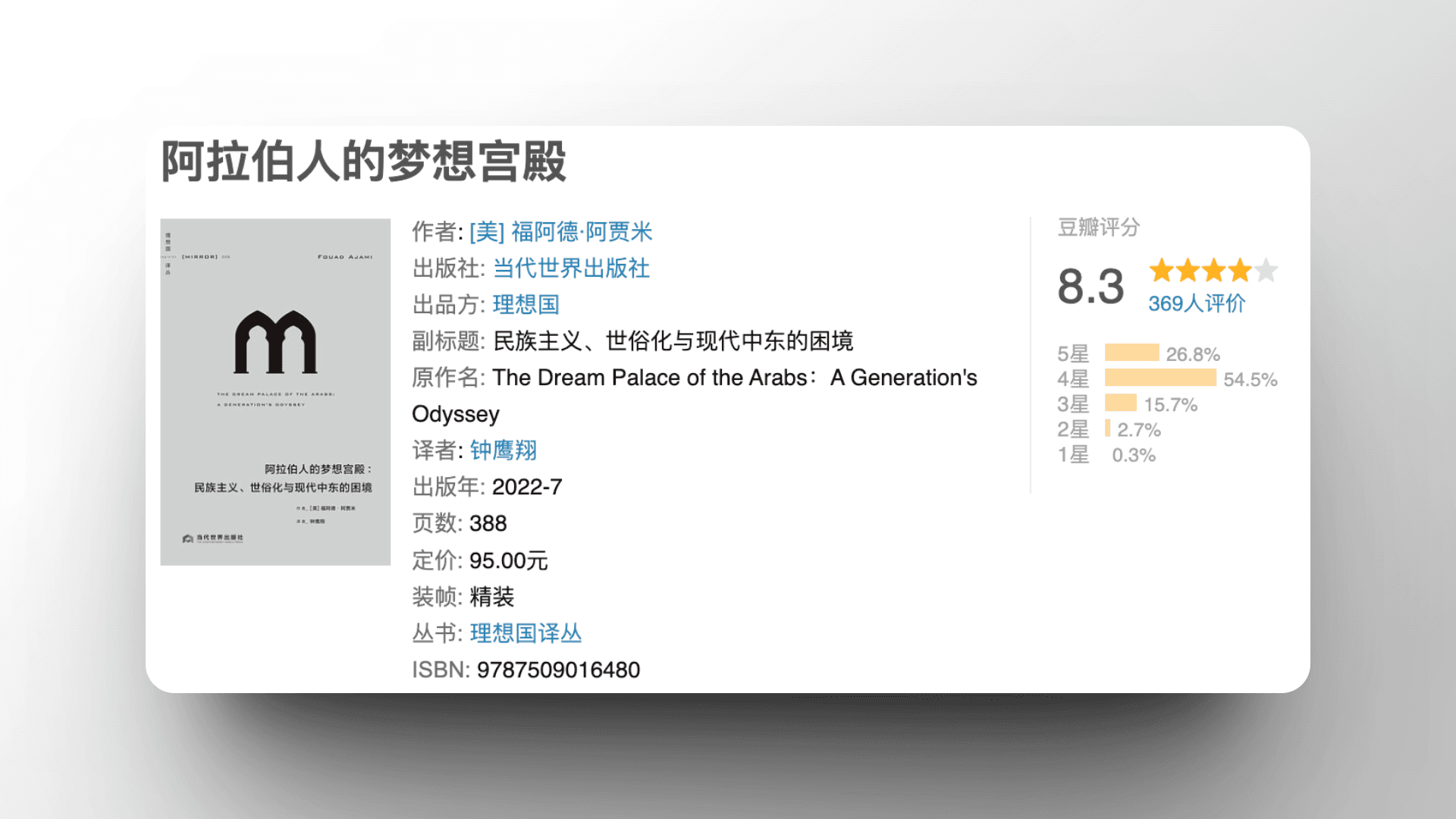"Defending Privacy"#

The author, Kevin Mitnick, is a top-notch hacker who has hacked governments, stolen from companies, and been to prison. He is powerful and arrogant, claiming to roam the Pentagon, access the Kremlin, enter all global computer systems, destroy the global financial order, and rebuild a new world order. No one can stop our attack, we are the masters of the world.
However, the first half of this book is quite boring, like a randomly found outline on how to protect privacy and security online, filled with content that can be found in encyclopedias. The second half is more interesting, as a frequently targeted hacker teaches people how to hide themselves on the internet.
As an ordinary person, it would be too exhausting to use enhanced encryption for everything and constantly worry about whether your computer's hard drive has been tampered with when going out. However, we still need to always keep in mind the saying by Robin Li, "exchanging privacy for convenience," and think about which behaviors are exchanging privacy for convenience.
"From the Qing Empire to Xi Jinping"#

Also about modern history, the content doesn't need much explanation. Many classic works such as "Modern Chinese History" by Xu Zhongyue and "Tracing Modern China" by Shi Jingqian have already been well written. However, we can still read this book because the closer the historical period, the richer the historical materials and the more accurate the research. In any case, this book is worth reading.
Finally, I quote Yan Lianke's summary:
Our country is new, yet very ancient; modern and prosperous, yet feudal and autocratic; Westernized, but fundamentally Asian. The world is changing this country, and at the same time, this country is changing the world. In this process, the innovation of this country lies in using an unfathomable reality to challenge the limits of human imagination. Thus, this country possesses a set of invisible and intangible rules and regulations that refuse to face reality, an existence that does not exist, and possibilities that are impossible. In short, this country has a set of rules and regulations that cannot be seen or touched. - Yan Lianke, "Explosive Thoughts"
"Two Worlds"#

This book records the experiences of an Egyptian delegation studying in France in the 19th century, allowing us to understand Europe and the Arab world from an Arab perspective.
The book is divided into two parts. The first part mainly introduces background information, and the second part is the author's notes in Europe. It is because of the background information that we can better understand the author's intention in writing this book. It is not simply a record of studying in Europe, but a purposeful introduction of advanced European ideas and technology into Egypt.
This period of history is quite similar to modern Chinese history: opening one's eyes to the world and learning from the more advanced West. However, there is a big difference: Egypt is a top-down approach, while China is a bottom-up approach.
The initial goal of Egyptian leaders was to strengthen the country, but in the later period, there were unexpected and unwelcome consequences - the new things brought back by the study group became one of the main sources and channels of new political ideas in the 19th century.
"The Dream Palace of Arab"#

This book mainly unfolds from the perspective of intellectuals, and the dilemma of intellectuals is also the dilemma of the Arab world - the inner expectation of unity and reshaping glory, but the reality is division and frequent struggles. Without a certain literary literacy and knowledge of Arab history, one cannot understand what this book is talking about and what it wants to express. After reading most of it, I have already forgotten the sentence from the book's description, "Where is the path to modernization in the Arab world?" It is a new bottle filled with old wine, and it is filled with a mixture of various things. The "Impression of the Ideal Country" series -1 point.
Under this land, the road to peace is bound to be full of hardships, and it is not a problem that can be solved by a few leaders or generations. The last chapter of this book, "Silent Peace," fully reflects the contradictions that the Arab people have to face: even after years of war, with millions of lives and homes lost, even if a leader finally pushes for the signing of a peace agreement, what they get is still the dissatisfaction of a large number of people in the country, especially the intellectuals. This kind of peace hurts their patriotism. Under this patriotism, they are angry, they protest, as if the lives of soldiers and civilians are not worth mentioning in the face of the humiliation they speak of.